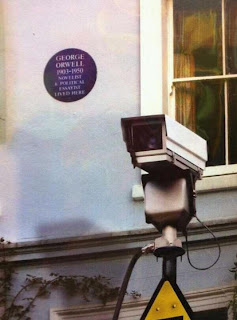
After serving with death squads in the Ukraine, Bernie Gunther is back in Berlin and working as a police detective. Even more disillusioned with the Nazi regime, consumed with self-loathing, and unafraid to express his cynicism and critique, he survives through bullish good police work, cunning and connections. When a Dutch foreign worker is found stabbed to death on rail tracks, he’s assigned to the case. Shortly after he rescues a beautiful woman, Arianne Tauber, being attacked at a darkened station. The man runs off only to be hit by a car in the blackout. The following day the man is found dead, identified as a suspected Czech resistance agent. Whilst Gunther investigates the case further, he falls for Arianne, who’s working a good-time girl in a high class jazz club. As the case starts to stall, he gets summoned to Prague by his nemesis, Reinhard Heydrich, the new Reichsprotector of Bohemia and Moravia. Some of Heydrich’s Nazi colleagues seem to be plotting his murder and he wants Gunther to be his bodyguard and detective. On a large estate just outside of Prague, Heydrich has gathered a motley collection of senior military figures to celebrate his new appointment. But rather than Heydrich being murdered, it is his adjutant that is found shot dead in a room locked from the inside. With Arianne sight-seeing around Prague, Gunther has the task of solving the case with a house full of military personnel who nearly all out-rank him, and Heydrich playing his usual games.
The four great strengths of Kerr’s Bernie Gunther series is the historicization within the Nazi regime, a strong noir voice, the lead character - a self-loathing, cynical, cantankerous cop with a moral core - and well constructed stories.
Prague Fatale delivers on the first two of these in spades. Kerr drops us into Berlin and Prague in 1941, the politics, the power-games within the Nazi regime, the suffering, the resistance. He evokes a very strong sense of place and time. The prose and dialogue are excellent, as usual. The novel is slightly let down, however, by the latter two. Kerr’s other Gunther novels use movement through time and space as a means to develop the main character and drive the story.
Prague Fatale is a fairly static book, divided into two, and there is a linear time narrative with the story set over a few weeks. The first part is set in Berlin and provides the set-up, the second, longer part, in Heydrich’s estate just outside of Prague. It is a locked room mystery, with a notable nod to Agatha Christie. The characterisation as a whole is good, and the story is full of real-life senior Nazis, however we learn very little new about Gunther. And whilst the story is historically embedded in what was happening in Berlin and Prague at the time, it is somewhat long-winded and lacking pace compared with the earlier books (and probably double the length of Christie’s locked room mysteries). In my view, the Prague section of the story would have benefitted from losing a good thirty to fifty pages or more. And part of the ending was telegraphed from a very long way out. That said, this is still a good, entertaining read, just not quite up there with the other Gunther books in my mind. As ever, though, I look forward to the next in one of my favourite series.

 The third installment of the Jimmy Kiley series was published today on Shotgun Honey - Infrared Dead. The first two can be found at:
The third installment of the Jimmy Kiley series was published today on Shotgun Honey - Infrared Dead. The first two can be found at:
































